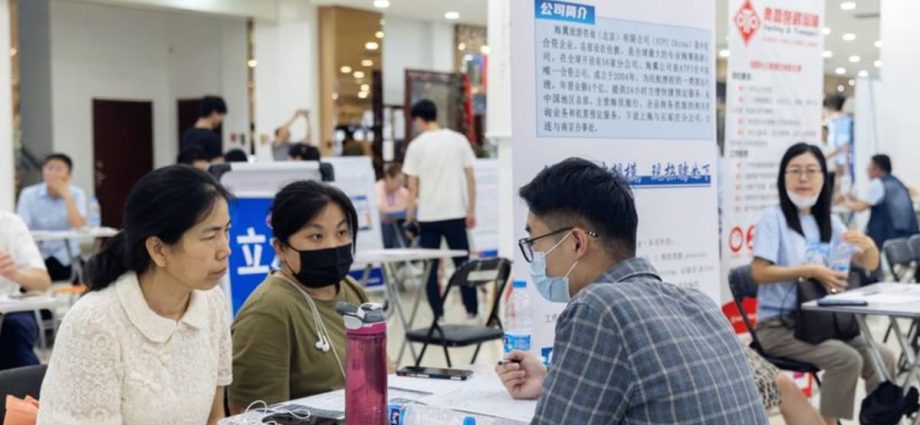
Since August, Emma Li has sent 300 job applications to companies in China. She has had four interviews.
The 26-year-old, who will graduate from one of the top business schools in Europe next year, has struggled to find a job that meets her expectations during the “golden fall” recruitment period in China’s labour market, lasting from September to the end of the year.
She sometimes missed calls from recruitment managers back home – complications caused by the time difference and jet lag while in Paris.
In another clear disadvantage, most firms she applied to no longer accept online interviews, as with the end of pandemic restrictions, companies now prefer to evaluate candidates in person.
“College degrees have depreciated so much in China,” Li said. “And companies set high thresholds for fresh graduates to do rather simple work.”
Li also has to compete with a record crop of domestic graduates, whose number is expected to reach 11.79 million next year – up 210,000 from 2023 according to the Ministry of Education – who will all be competing for gainful employment amid a sluggish economic recovery.
The jobless rate for those aged 16 to 24 has remained at an elevated level, hitting 21.3 per cent in June before Beijing suspended publication of the data.
“The employment difficulty for domestic graduates in China will inevitably spread to overseas students,” said Peng Peng, executive chairman of the Guangdong Society of Reform think tank.
Li did not consider returning to China to work until the final year of her three-year programme, when a family illness prompted her to look for opportunities closer to home.
However, even students who enrol in one-year programmes overseas are quick to conclude prospects are better in China, choosing to make the journey back when their studies are over.
The short academic year generally do not provide international students with enough time to build local connections and gain workplace experience, as tightening immigration policies in countries like the US and UK – prime destinations for studying abroad – cast a shadow on career paths for Chinese students there.

